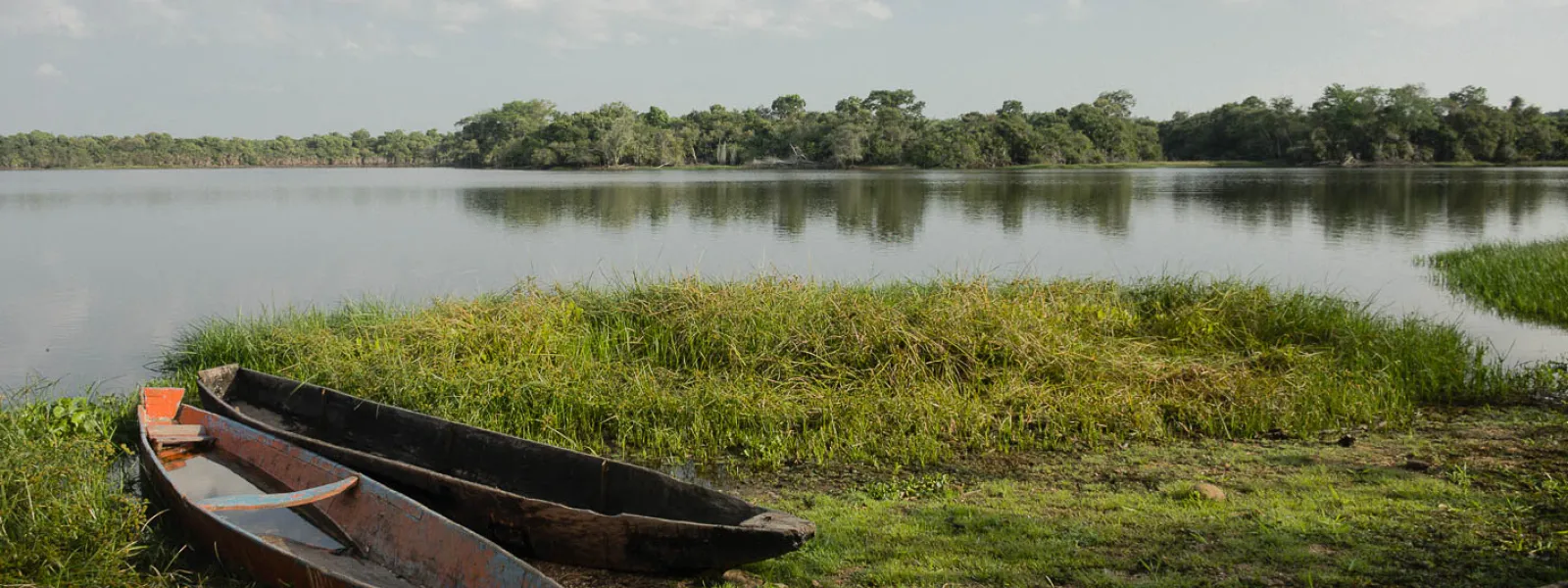
In regressive decision, high court endorses fracking in Colombia
Photo: Fernanda Núñez/AIDA.Bogotá, Colombia. Colombia’s highest administrative court, the Council of State, on Thursday ruled against a lawsuit that sought to nullify the government’s regulation of fracking, effectively endorsing the controversial technique’s implementation in the Andean nation.
The nullity lawsuit was filed by the Public Interest Law Clinic of the Universidad del Norte—which was jointly advised by AIDA, Corporación Podion, and the legal clinics of Universidad Javeriana and Universidad de los Andes—in an attempt to challenge the legality of the rules that would allow for fracking operations in the country, found in 2013’s Decree 3004 and 2014’s Resolution 90341.
This decision means the suspension of Colombia’s judicial moratorium on fracking, which has been in place since 2018, when the when the Council preventively suspended the rules based on the precautionary principle and due to the lack of certainty about the risks of irreversible damage that the technique implies for the environment, climate and public health.
Fracking has been assessed by national and international academics and scientists as an experimental technique that threatens air, water, human health, democratic participation, social fabric and culture, traditional knowledge systems, biodiversity and, in the long term, economic, seismic and climatic stability. In addition, it creates atmospheric pollution due to the emission of methane—a potent gas whose warming potential is 84 to 87 times greater than carbon dioxide on a 20-year scale.
While the Council of State's ruling ratifies the government's regulations and lifts the moratorium, it does not exonerate national and local authorities from protecting the environment and respecting the fundamental rights of the population as they consolidate the mining and energy policy.
Legal experts who brought the case before the Court respond to the ruling:
"In Latin America and around the world, many countries have banned fracking because of its impacts on the environment and on the protection of human rights. The ruling of Colombia’s Council of State is regressive and goes against international advances on environmental, climate and human rights issues.”
- Yeny Rodríguez, attorney with the Interamerican Association for Environmental Defense (AIDA)
"The Council of State has issued a decision contrary to the facts proven in the litigation. They have ignored the survey conducted by the National University of Colombia, the report of the expert commission, the concept of the Attorney General's Office, and the rest of the documentary evidence and scientific texts that clearly demonstrated the need to prohibit this technique under the precautionary principle. In addition, the ruling ignores Colombia's international climate commitments and the principle of intergenerational solidarity, as it ignores the fundamental rights of future generations."
- Juan Pablo Sarmiento, plaintiff’s attorney in the case.
“The Council of State lost a great opportunity to strengthen, through the courts, a regulation that many experts considered too weak to protect the environment and public health. Its now is in the hands of the national government and the legislature to guarantee society the protection of the precautionary principle and democratic participation in environmental matters"
- Juan Felipe García, attorney with the Law and Territory Clinic of the Universidad Javeriana
“The decision of the highest administrative court in the country is not an open invitation to carry out fracking in Colombia. The government must fully guarantee the right to participation and the voice of communities in decision-making about projects that may generate environmental impacts in their territories, as well as guarantee the safety and protection of environmental leaders who defend their territories".
- Silvia Quintero, legal advisor to the Environmental and Public Health Legal Clinic of the Universidad de Los Andes
“The lifting of the judicial moratorium on fracking leaves open the possibility of moving forward with such projects whose contracts were previously suspended. It’s necessary that fracking have a social license because several regions of the country have been considered as potential areas for its implementation."
- Lizeth Gómez, attorney with Corporación Podion
Contactos de prensa:
Juan Pablo Sarmiento, [email protected].
Yeny Rodríguez, AIDA, [email protected], +573107787601
Juan Felipe García, Clínica en Derecho y Territorio de la Universidad Javeriana, [email protected], +573125588889
Lizeth Gómez, PODION, [email protected], +573176430036
